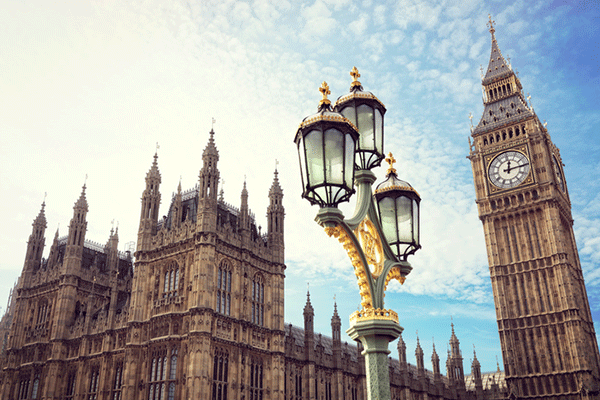House of Lords strengthens pension dashboard plans
The Lords has this week introduced two important amendments which should make the dashboard system more …
2nd July 2020 10:46
by Faith Glasgow from interactive investor
The Lords has this week introduced two important amendments which should make the dashboard system more robust.

The House of Lords has made a number of amendments to the important Pension Schemes Bill 2020 as it passes through Parliament.
The bill covers many aspects of the future pensions landscape, aiming to strengthen the system and provide better protection for consumers. In particular it lays the foundations for a long-awaited pensions dashboard scheme, which will enable pension savers to see all their pension pots and their state pension in one place, and make more informed decisions about their retirement.
However, the Lords has this week introduced two important amendments which should make the dashboard system more robust. First, they stipulated that commercial dashboards should not be able to launch until the publicly run Money and Pension Service (MaPS) version has been in action for at least a year and can be assessed.
Second, it was agreed that in order to avoid the risk of scams or poor decisions by investors, commercially run dashboards should not be able to offer financial transactions at this stage.
Ros Altmann, the former pensions minister, explains the Lords’ concerns in this regard: “The big fear expressed on all sides of the House was that a privately run pensions dashboard, which would show a person all their pensions from all past schemes, could also offer them a ‘Consolidate Now’ button. This could potentially transfer all their past pensions to that commercial company, which may not be in their interests.”
Altmann acknowledges that measures already in place to require guidance from MaPS before transferring pensions will help, but reports that “this new amendment offers much more protection”.
She adds: “It will also prevent private dashboards from selling other financial products to unsuspecting consumers. Given all the scandals we have seen in the past, it is only right that we are cautious when establishing dashboards.”
However, pension providers are less convinced by the amendments. Kate Smith, head of pensions at Aegon, comments: “The purpose of pension dashboards is to let savers see all their pensions online in one place. This will be a valuable way of savers keeping track of their pensions. But once they have found their pensions, savers may wish to start consolidating these into modern schemes which tend to have not only lower charges, but also better engagement tools to help them plan for retirement.”
Smith says the pensions industry is already well aware of the growing risk of scams and fraudulent practices, but that these can be managed through strict regulations around dashboards, which “should include having the ability to stop transfers when suspicious activity is triggered by warning systems”.
In regard to the amendment delaying the introduction of commercial dashboards until after the MaPS version, she argues that pension savers are more likely to use a pension dashboard with their current pension provider rather than a publicly provided one, as they have “an existing relationship and an established level of trust” with their provider.
“The dashboard can also be incorporated into the overall customer experience to form a core part of a customer’s savings journey. This can be complemented by online planning and support tools from their provider which is likely to help with improving pension engagement levels. The sooner pension dashboards are up and running, the better.”
There is no guarantee that the Lords’ amendments will be adopted, however. The bill now returns to the House of Commons, where MPs may choose to reject some or all of them.
Among various other issues, the Pension Schemes Bill already includes greater powers for the Pensions Regulator, which should make it easier for the regulator to take on uncompliant employers.
In addition, it also focuses on the role of pension funds in managing climate change, requiring them to explain how their assets will help to protect the planet and their impact in terms of supporting long-term carbon emission reductions.
This article was originally published in our sister magazine Money Observer, which ceased publication in August 2020.
These articles are provided for information purposes only. Occasionally, an opinion about whether to buy or sell a specific investment may be provided by third parties. The content is not intended to be a personal recommendation to buy or sell any financial instrument or product, or to adopt any investment strategy as it is not provided based on an assessment of your investing knowledge and experience, your financial situation or your investment objectives. The value of your investments, and the income derived from them, may go down as well as up. You may not get back all the money that you invest. The investments referred to in this article may not be suitable for all investors, and if in doubt, an investor should seek advice from a qualified investment adviser.
Full performance can be found on the company or index summary page on the interactive investor website. Simply click on the company's or index name highlighted in the article.